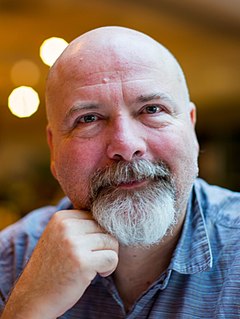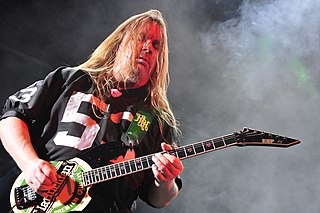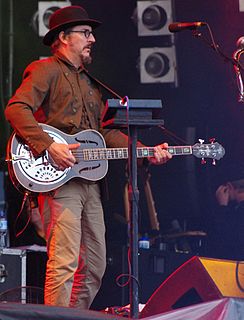A Quote by Thelma Schoonmaker
Editing is a lot about patience and discipline and just banging away at something, turning off the machine and going home at night because you're frustrated and depressed, and then coming back in the morning to try again.
Related Quotes
I'm not a person who believes in the great difference between women and men as editors. But I do think that quality is key. We're very good at organizing and discipline and patience, and patience is 50 per cent of editing. You have to keep banging away at something until you get it to work. I think women are maybe better at that.
If I was feeling depressed or frustrated about my lot in life, all I had to do was tap the Player One button, and my worries would instantly slip away as my mind focused itself on the relentless pixelated onslaught on the screen in front of me. There, inside the game's two-dimensional universe, life was simple: It's just you against the machine. Move with your left hand, shoot with your right, and try to stay alive as long as possible.
Depression is a lot like that: slowly, over the years, the data will accumulate in your heart and mind, a computer program for total negativity will build into your system, making life feel more and more unbearale. But you won't even notice it coming on, thinking that it is somehow normal, something about getter older, about turning eight or about turning twelve or turning fifteeen, and then one day you realize that your entire life is just awful, not worth living, a horror and a black blot on the white terrain of human existence. One morning you wake up afraid you are going to live.
I've had sex before with the belt on. That was back in the Ricco Rodriguez days. The night I won the belt I had a sexual experience with the belt on. But hey, I was 25 years old and it was the biggest thing that ever had happened to me in my life. The girl was like hey, are you going to take that thing off. And I said no, I'm not...I'm wearing it and if you have a problem with it, then I'm leaving. And I hate to say it, but if I do win the belt again, then this time it's never coming off. I'm going to wear it a lot more.
I'd been depressed before, of course. But I'm talking about really depressed. Not just feeling a bit down or sad, a depression that has something to do with biorhythms. I'm talking about the kind of depressed that floats in upon you like a fog. You can feel it coming and you can see where it is going to take you but you are powerless, utterly powerless to stop it. I know now.
When I have just sat down and tried to write the lyrics of a song, usually about half of it sounds like bullshit. I just have to go away from something and come back to it again later. I do a lot of editing and switching around and putting little pieces together to get the right mood and personality, and it takes me forever to get a song finished.
Having the brain tumor, coming out of surgery and going through all of that, you're like, I am never going to feel the same and I have this new perspective on life. So much gratitude, life just feels like this enormous treasure. Then that kind of just falls away and you're back being grumpy about having an early morning meeting.
Women are elephants and watch the way you say that in front of them because they'll think you're calling them fat and there's no coming back from that moment. But they hoard. They say they don't, but they do. We think that if something's not spoken about again, it goes away. It doesn't. Nothing goes away just like that.


































